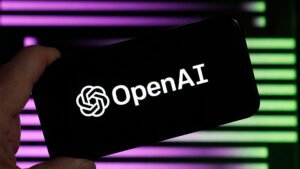Top AI Salaries Reach $250 Million—Far Outshining Historical Scientific Awards
Record Compensation Packages Shake the AI Talent Market
-
AI researcher Matt Deitke, at just 24 years old, is reportedly offered $250 million over four years by Meta—equating to an average of $62.5 million annually Ars Technica+12Ars Technica+12Ars Technica+12CO/AI+1AllSides+1.
-
His compensation package is approximately 327 times what J. Robert Oppenheimer earned during the Manhattan Project. Other historical comparisons show that engineers from the Apollo program made less in a year than Deitke’s first-day earnings Ars Technica+4CO/AI+4Ars Technica+4.
A Talent Arms Race
-
The explosion in pay reflects fierce competition among AI leaders like OpenAI, Anthropic, Cohere, and Meta, all vying for elite multimodal AI researchers.
-
Business Insider reports base salaries up to $530K at OpenAI and $690K at Anthropic—excluding stock options and bonuses—demonstrating the depth of the hiring battle Business Insider.
Bigger Stakes Than Ever
-
Meta CEO Mark Zuckerberg has publicly committed to “throwing money at AI talent”, positioning this as necessary investment toward achieving superintelligence and capturing a multi-trillion-dollar market.
-
The magnitude dwarfs past large-scale science projects: where the Manhattan Project cost ~$1.9B in total, Meta plans to spend tens of billions annually on AI research and infrastructure axios.com+5CO/AI+5timesofindia.indiatimes.com+5.
Compensation Comparison Table
| Comparison | Salary in Today’s Dollars |
|---|---|
| Matt Deitke (Meta offer) | ~$250 million over 4 years |
| J. Robert Oppenheimer | ~$190K/year during Manhattan Project |
| Apollo-era engineer (senior) | ~$278K/year |
Final Takeaway
These massive compensation packages underscore the belief within Silicon Valley that the next breakthrough in AI—potentially artificial general intelligence—will redefine global economic power. With firms openly competing in what feels like an arms race for researchers, compensation norms are rewriting the playbook for talent acquisition, far exceeding past scientific eras.







